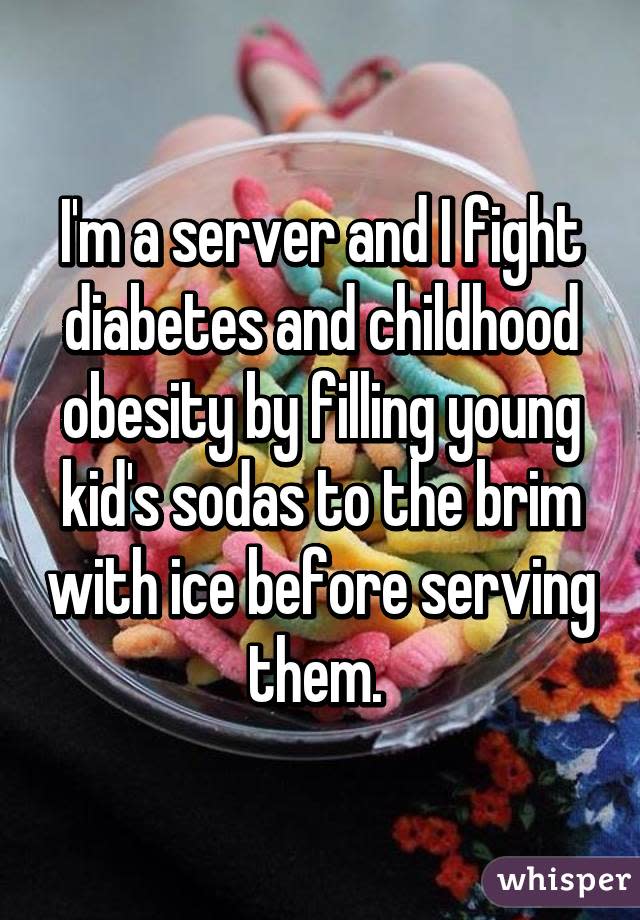September is National Childhood Obesity Awareness Month and here's why it matters

National Childhood Obesity Awareness Month began just last year in September 2014 after President Obama made a proclamation about the month-long event. Even though it is fairly new, the month has some big goals prepared.
National Childhood Obesity Awareness Month is set up to raise awareness about the childhood obesity epidemic in America and show people how they can help solve this problem.
A post shared by Lindsay Platky (@lp.slamdc) on Sep 8, 2015 at 6:10am PDT
According to the Centers for Disease Control, one in three children in the United States is either overweight or obese. Having obesity in childhood sets people up for more health risks later in life, such as developing type 2 diabetes, high blood pressure and heart disease. Although these used to be health problems only seen in adults, they are becoming more common in children because of this epidemic.
Although the statistics may be shocking, recent data shows improvement is not only possible but actually happening right now: obesity rates have fallen 43% in children two to five years old.
%shareLinks-quote="This month, we build on our progress and raise awareness of the benefits of healthy eating and active living so our children can lead prosperous and productive lives " type="quote" author="President Barack Obama" authordesc="" isquoteoftheday="false"%Michelle Obama's Let's Move initiative aims to ensure every child has the chance at a healthy childhood. The four-year-old campaign seeks to expand and encourage physical activity and healthy eating in both the public and private sectors.
Although there is no simple solution, there are ways to curb and further prevent this major health concern.
See also: 7 awesome, healthy habits you seriously need in your life
A post shared by SkinnyMint— Over 1.5M Sold!! (@skinnymintcom) on Sep 5, 2015 at 11:05pm PDT
Promote healthy eating:
One of the factors that contribute to childhood obesity is eating habits. Too often, children have too-easy access to high-calorie snacks. Parents can provide their children foods that are high in nutrients and low in calories, such as fruits and vegetables, instead of foods that have high-calorie ingredients, like added sugar and solid fats.
Provide no-calorie beverage options, like water, instead of beverages that are high in calories and packed with sugars, such as sodas.
Eating the right amount of calories is crucial to a child's physical development. Overeating can do more harm than good and can lead to obesity. There are a few ways to curb this habit: portion out snacks and meals, stop using the "clean plate rule" and use physical activity instead of food as a reward. For example, take children to the park instead of taking them out for ice cream after an A on a quiz.
See also: 20 savory ways to enjoy your veggies
Get moving:
Physical activity is a crucial component to being healthy. Not only does it help control weight but it also increases coordination, builds muscles and strengthens bones. It's important to be a supportive and positive influence when it comes to being active. Studies show that children are more likely to be physically active if they believe they are competent and have the ability to be physically active. Children need 60 minutes a day of vigorous physical activity a day in order to maintain a healthy weight.
Check out community involvement opportunities, as well. Look out for sports leagues in the area or volunteer gardening sessions. The options are endless: check out the CDC's list of age-appropriate aerobic, muscle and bone-strengthening activities for kids to do.
See also: 7-minute workout perfect for anyone on the go
A post shared by D S F L E X (@ds_flex_activewear) on Aug 30, 2015 at 5:43pm PDT
Maintain a healthy energy balance:Obesity isn't always formed in the kitchen. Sometimes it's formed because of too many sedentary activities. Too much time spent in front of the TV or lack of a bedtime routine are examples of this. Try to limit screen time on phones or other electronic devices to two hours a day for kids two years and older.
Make sure children are getting enough sleep. Sleep deprivation can wreak havoc on your body. Sleep is even more important to children, whose bodies are still developing. Lack of sleep contributes to children becoming overweight or obese. Parents and children should stick to a bedtime schedule. According to Boston Scientific, toddlers need between 11 and 12 hours of sleep a night, school-aged children need 10 hours and teenagers need at least 9 hours.
See also: Is your child getting enough sleep?
More from AOL.com:
8 easy food swaps that will make you healthier
The most important lesson to teach your children
Your kids are not getting enough water




